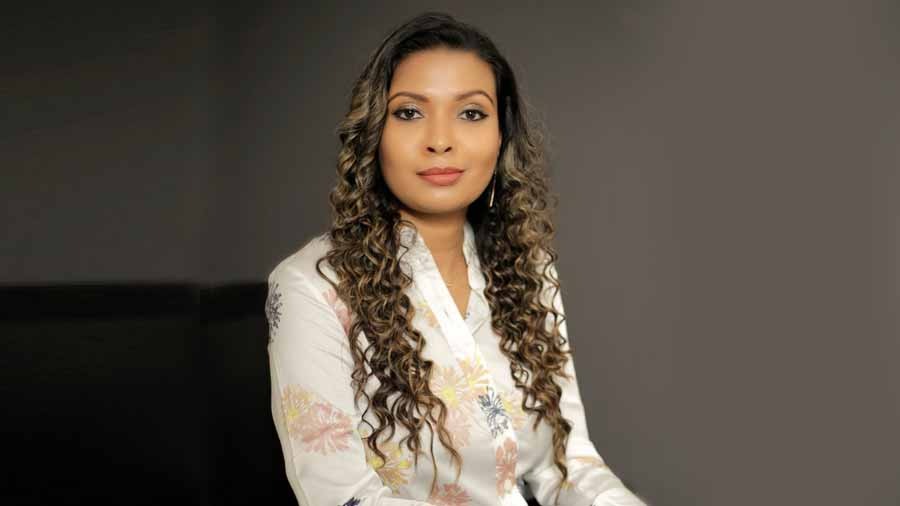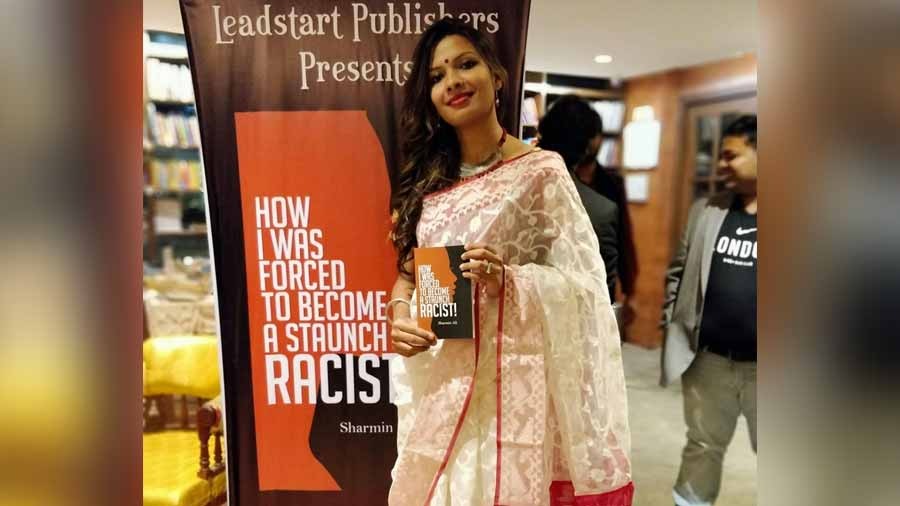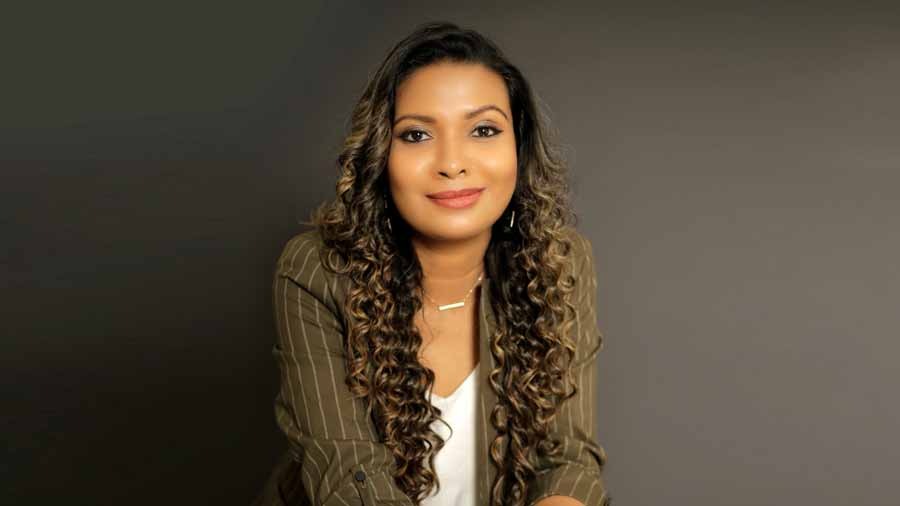Running a multi-million dollar company is not enough for Bangalore-based entrepreneur Sharmin Ali, who alternatively wears the cap of a theatre actor, a TEDx speaker, and an author. However, things weren’t quite handed down to her on a silver platter. The probashi Bangali opened up to My Kolkata over a virtual chat about her journey in blending commerce with content, overcoming personal obstacles, why humility matters and more…
You’ve been vocal about the impact your speech defect had on your life, and the effort it took to overcome it…
My speech defect definitely affected my confidence. It remained a challenge till I was 21. I put a lot of effort into speech therapy. Speech therapists made me realise that most of my issues came from nervousness and lack of confidence, and if I overcame them, I could speak as fluently as I wanted. They asked me to frame complete sentences in my mind before speaking, and it really helped. My speech therapist was actually the one who recommended that I start doing theatre. During all the initial mockery and mental distress, I would never yell at anyone, but contain the situation. My mom always told me that I should channelise negative energy into something that would yield more results. I have learnt this, and today, if there is an alarming situation around me, I am not perturbed in my reaction.

‘My speech defect definitely affected my confidence. It remained a challenge till I was 21,’ says Sharmin
How did the entrepreneurship bug bite you?
I came to Bangalore for my engineering degree, and also started my career as an analyst here. However, the leadership team of my then-firm understood that I was meant to be in sales and not an analyst, so they moved me there. I spent the next five years in the United States, working with a number of Fortune 500 companies. At some point, I realised that I was just helping the rich get richer, but wasn’t adding any value to my own life. That’s when I realised that the only way I would be satisfied was by building something of my own, and I returned to India. My vision was to build India's very own Netflix, because the streaming revolution had already begun in the US. That’s how Art-Right-Is Productions was born, in 2015. We ended up writing over 70 scripts, and had more than 500,000 followers and 7 million views on YouTube and Vimeo. We were one of the first companies to enter the OTT space in India, creating digital content, and writing and ideating scripts. But six years ago, the main challenge was monetisation. Indian audiences were used to consuming content on their television sets, not on their mobiles or laptops. Moreover, the Jio revolution was just starting. We understood that we were a little early in this space and decided to sell the copyrights of all the scripts to a Mumbai-based production house. Finally in 2019, I started Instoried — a startup that helps companies increase digital engagement by both examining and generating online content using artificial intelligence. It's been over three years now and I couldn’t be more positive. The key realisation from my life has been that despite running a multi-million dollar company, the only thing that propels your life is humility.
Why does theatre play such an important role in your life?
I have been performing for the last 14 years. My mom is a Bengali theatre artiste and I have inherited her love for the art form, having grown up seeing her perform at Durga Puja events. Theatre helped me overcome my speech defect, because there, we don’t have any mics, we have to essentially speak from the gut. I learnt how to project my voice, while keeping my energy and confidence. I have done over 300 hours of voice training — it has removed all my public-speaking fears and I can spontaneously address an audience. My theatre background also helps me in raising money from investors, as it has taught me the art of storytelling and speaking with conviction.
How did you develop an interest in storytelling?
It actually comes from my Bengali roots. Growing up, there was a lot of emphasis on reading and consuming quality content. The first thing I remember watching with my grandmother was Apur Sansar. With writing too, my mom would always tell me that I had to be a good reader before I could write. Reading allowed me to understand the art of storytelling better and it got easier to express my thoughts. When you keep reading, patterns start developing in your brain and you can understand the formula behind telling a story. How to craft a protagonist and antagonist, creating their current situation, taking them to an expected state, their relationships, and moving the plot forward. Over the course of my life, I have experienced events like floods, earthquakes and riots, which made me feel like I had so much to tell, and there was a burning desire to write. I’m someone who gets into a zone when I write and create content. I don’t respond to doorbells and phone calls. So, my first book took me just 30 days. My second book involved a lot more research, so it took me six months. Writing the books made me realise that I could really connect through storytelling, and this became the basis for launching Instoried. Both these books were non-fiction, but the third one, which I am currently writing, is going to be fiction. It is inspired by my experiences as a woman entrepreneur in a sexist work environment.

Sharmin at the launch of her second book
What was your childhood like… being from a Bengali family that moved extensively around the country…
My father is from Santiniketan and my mom is from Cooch Behar, but I was born in Kolkata. Because my father had a transferable job, most of my education was outside the city. But we used to visit Kolkata for a month during summer vacation. We would go to Kalighat temple for prasad, and eat shamelessly at every festival! Every time we came here, my father would take me to the birthplace of Rabindranath Tagore, and emphasise the importance of my culture. We would also travel in a local train from Sealdah to Santiniketan, where my grandfather would receive us in his classic white Ambassador, wearing a traditional dhuti-panjabi. And we would gorge on jhalmuri with shorsher tel while listening to Baul gaan! This was a ritual for the first 14-15 years of my life. All of my ‘Bengaliness’ comes from my family. My father is from south Bengal and my mom from north Bengal, and I have family in each and every other part of Bengal.

Chelo Kebab — a favourite of Sharmin’s in Kolkata
Do you have any favourite things to do/eat in Kolkata?
I visit Kolkata twice a year. I love all the conventional things about Kolkata — be it Chelo Kebabs at Peter Cat or Chinese food at Tangra. But my favourite is undoubtedly the phuchka, which you can’t find anywhere else in the world. I also definitely go to the Tollygunge Club, and Flurys for breakfast. But my favourite comfort food is khichuri and begun bhaja, which I always pester my mom to make when I am home!
